
The full approval follows an accelerated approval from January 2023 and was based on a confirmatory trial, which found lecanemab slowed disease progression compared with placebo.

Laura Joszt, MA, is the vice president of content for the managed care and pharmacy brands at MJH Life Sciences®, which includes The American Journal of Managed Care®, Managed Healthcare Executive®, Pharmacy Times®, and Drug Topics®. She has been with MJH Life Sciences since 2011.
Laura has an MA in business and economic reporting from New York University. You can connect with Laura on LinkedIn or Twitter.

The full approval follows an accelerated approval from January 2023 and was based on a confirmatory trial, which found lecanemab slowed disease progression compared with placebo.

Two abstracts presented at the 2023 American Society of Clinical Oncology annual meeting evaluated biosimilar adoption across oncology practices and highlighted the role payers play in preventing or promoting adoption.
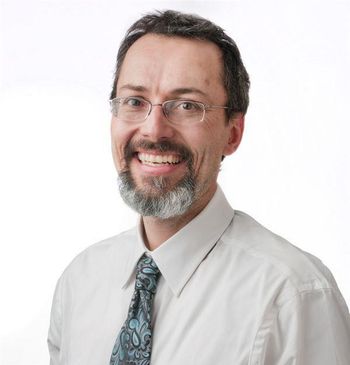
Unless all populations are represented adequately in trials, it will be hard to know if a drug works the same in all populations as it does in one specific one, explained Robert Dellavalle, MD, PhD, MSPH, of University of Colorado School of Medicine and Rocky Mountain Regional VA Medical Center.

After 7 years, competition for Humira is here. The first adalimumab biosimilar launched in January, but an additional 8, including an interchangeable product, will hit the US market in July.
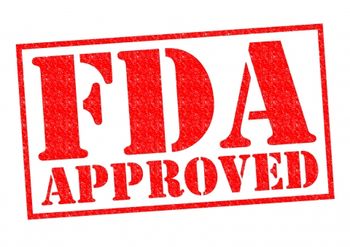
The treatment is the first approved by the FDA to treat the 2 most common subtypes of generalized myasthenia gravis.
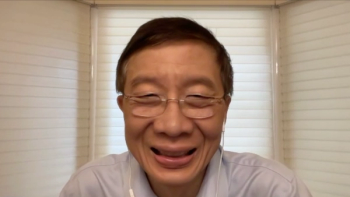
Gene therapy is only one exciting area of treatments in the pipeline to potentially treat inherited retinal disease, said Byron L. Lam, MD, professor of ophthalmology, University of Miami Miller School of Medicine's Bascom Palmer Eye Institute.

The Act4Biosimilars Action Plan seeks to increase biosimilar adoption by at least 30 percentage points in 30-plus countries by 2030.

Glofitamab is the first bispecific antibody with a fixed-duration treatment for adults with relapsed or refractory diffuse large B-cell lymphoma (DLBCL).

The pharmacy benefit manager SmithRx has announced that through a partnership with the Mark Cuban Cost Plus Drug Company, it will offer Yusimry, an adalimumab biosimilar, for less than 90% of the cost of the reference product, Humira.

The most exciting treatment for inherited retinal disease was approved in 2017, but there are many novel treatments in phase 2 or phase 3 trials at this point, said Byron L. Lam, MD, professor of ophthalmology, University of Miami Miller School of Medicine's Bascom Palmer Eye Institute.

The findings provide further support of recommendations in the clinical guidelines to favor one therapy over the other.

Patients with depression, anxiety, or both at the time of diagnosis of diffuse large B-cell lymphoma (DLBCL) have worse overall survival and lymphoma-specific survival.

When multiple trastuzumab biosimilars entered the US market in quick succession, they were able to do something other biosimilars have not in the United States: drive down the cost of the originator biologic.

Abstracts presented at EULAR 2023 highlighted the impact that a mandatory switching policy had on biosimilar uptake in British Columbia, Canada, and the lack of uptake when no such policy was in place in the United States.

New research has found the 340B program is slowing uptake of biosimilars by incentivizing use of more expensive biologics.

Insurance is by far the most important factor of whether patients followed up with treatment after getting screened for glaucoma, said Byron L. Lam, MD, professor of ophthalmology, University of Miami Miller School of Medicine's Bascom Palmer Eye Institute.

The FDA approved Celltrion Healthcare’s Yuflyma (adalimumab-aaty), which is a high-concentration, citrate-free formulation.
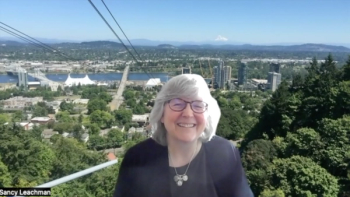
Addressing racial disparities in skin cancer involves education, understanding rates of risk and ethnicity, and knowledge of the different types of melanoma, which makes skin cancer disparities complex to attack, said Sancy Leachman, MD, PhD, professor and chair in the Department of Dermatology and director of the Melanoma Research Program at the Knight Cancer Institute at Oregon Health and Science University.
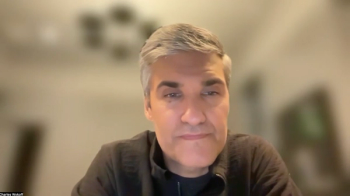
Gene therapies like RGX-314 are looking to treat very common diseases in ophthalmology, which would represent a tremendous opportunity for chronic disease management, said Charles C. Wykoff, MD, PhD, of Retina Consultants of Texas and the Blanton Eye Institute at Houston Methodist Hospital.
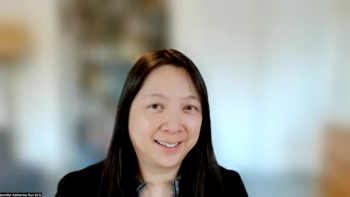
There is a concerted effort to identify biomarkers to understand the risk of progression of diabetic eye disease, but many studies have not been performed in diverse populations, explained Jennifer K. Sun, MD, MPH, associate professor of ophthalmology and chief of the Center for Clinical Eye Research and Trials, Harvard Medical School; and chair, DRCR Retina Network.
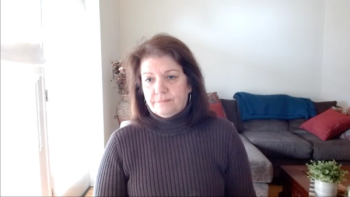
Oncology has been an easy area for employers to adopt biosimilars because of the rising costs in the space, said Margaret Rehayem, vice president, National Alliance of Healthcare Purchaser Coalitions. Now that multiple adalimumab (Humira) biosimilars are hitting the US market, employers should take a step back to review their current strategy around the drug.

The DRCR Retina Network is undertaking research to develop preventive strategies for diabetic eye disease, explained Jennifer K. Sun, MD, MPH, associate professor of ophthalmology and chief of the Center for Clinical Eye Research and Trials, Harvard Medical School; and chair, DRCR Retina Network.

Rebates remain very attractive for many employers, but they should push back on the reliance on rebates that may be preventing biosimilars from being added to formularies, said Margaret Rehayem, vice president, National Alliance of Healthcare Purchaser Coalitions.

Gene therapy has the promise of being one and done, but it isn’t always that way for all patients, which leaves questions about where these therapies fit in the commercial landscape, said Charles C. Wykoff, MD, PhD, of Retina Consultants of Texas and the Blanton Eye Institute at Houston Methodist Hospital.

While employers fall on a spectrum when it comes to knowledge and understanding of biosimilars, there does remain a need to educate them, as well as for them to educate their employees, said Margaret Rehayem, vice president, National Alliance of Healthcare Purchaser Coalitions.
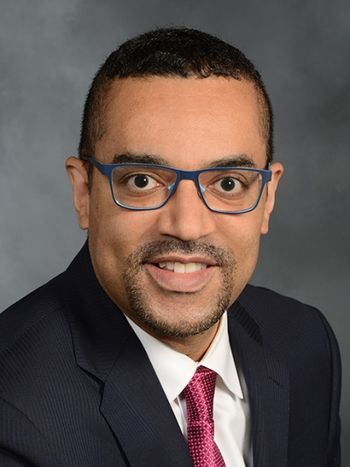
Lack of knowledge about how skin conditions present on lightly pigmented skin has resulted in diagnostic delays, underassessment, and an impact on quality of life for patients with skin of color.
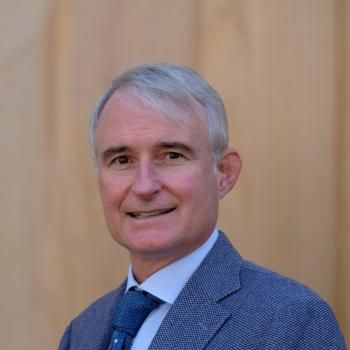
Retinopathy of prematurity (ROP) that occurs in preterm babies can progress fast, which requires quick decisions early about treatment, explained Darius M. Moshfeghi, MD, chief, Retina Division, and professor at the Horngren Family Vitreoretinal Center, Byers Eye Institute, Department of Ophthalmology, Stanford University School of Medicine.

Each patient needs to weigh the benefits and risks of genetic testing for melanoma and have someone who can take the time to explain everything, including insurance risks, said Sancy Leachman, MD, PhD, professor and chair in the Department of Dermatology and director of the Melanoma Research Program at the Knight Cancer Institute at Oregon Health and Science University.

The Employer Playbook on Biosimilars highlights strategies employers can use to navigate challenges around ensuring employee access to biosimilars at the pharmacy, as well as how to respond to pharmacy benefit managers who aren’t making biosimilars available on the formulary, said Margaret Rehayem, vice president, National Alliance of Healthcare Purchaser Coalitions.
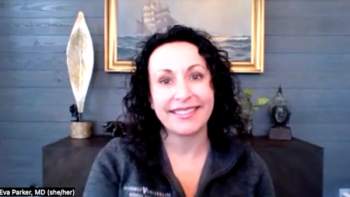
Not only are Black and Brown communities, as well as neighborhoods with lower socioeconomic status, disproportionately impacted by climate change, but these communities are not as readily able to adapt to mitigate the impacts climate change has on health.

259 Prospect Plains Rd, Bldg H
Cranbury, NJ 08512
© 2025 MJH Life Sciences®
All rights reserved.
